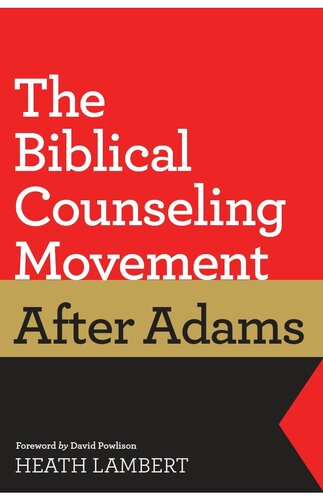

Most ebook files are in PDF format, so you can easily read them using various software such as Foxit Reader or directly on the Google Chrome browser.
Some ebook files are released by publishers in other formats such as .awz, .mobi, .epub, .fb2, etc. You may need to install specific software to read these formats on mobile/PC, such as Calibre.
Please read the tutorial at this link: https://ebookbell.com/faq
We offer FREE conversion to the popular formats you request; however, this may take some time. Therefore, right after payment, please email us, and we will try to provide the service as quickly as possible.
For some exceptional file formats or broken links (if any), please refrain from opening any disputes. Instead, email us first, and we will try to assist within a maximum of 6 hours.
EbookBell Team

0.0
0 reviewsPeople inside and outside of the biblical counseling movement recognize differences between the foundational work of Jay Adams and that of current thought leaders such as David Powlison. But, as any student or teacher of the discipline can attest, those differences have been ill-defined and largely anecdotal until now.
Heath Lambert, the first scholar to analyze the movement's development from within, shows how biblical counseling emerged from, and remains rooted in, a commitment to the sufficiency of Scripture and the need to give practical help to struggling people. He identifies contemporary leaders—including Powlison, Ed Welch, Paul Tripp, and Wayne Mack—who emphasize the sinner as sufferer, the heart as key to motivation, and the need to interact humbly with critics. Demonstrating how these refinements in framework, methodology, and engagement style are characteristic of a second generation of biblical counselors, Lambert contends this new wave of counselors is now increasingly balanced in their counseling methods.
With a substantial foreword from David Powlison and strong support from prominent biblical counselors, this book will help all Christians interested in the fundamentally theological task of counseling to think carefully and biblically about how it is taught and practiced.